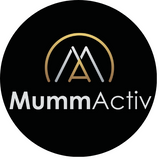News
Getting our morning fix when BREASTFEEDING ☕️
For a sleep deprived mother coffee becomes life...
The caffeine helps to get through the sleep deprived days. So the question often gets asked how much coffee is too much for the breastfeeding mum.
Statistics show that nearly half (46%) of Australian’s drink coffee and that having children increased the weekly coffee consumption by 2.4 cups (7.2 v 9.6 cups per week).
Most breastfeeding mothers can consume a moderate amount of caffeine (eg a few cups of coffee or tea each day) without it affecting their babies. Caffeine does transfer to breast milk but in very low concentrations (0.06%-1.5% of 300mg of caffeine) Newborn babies however can be particularly sensitive to caffeine. This is because it can take a newborn baby a long time (ie half-life of 50–100 hours) to process caffeine. By 3–4 months, however, it takes a baby only about 3–7 hours. (According to ASN)
Caffeine content in common drinks and food1,2
|
Drink/food |
Caffeine level (mg) |
|
Espresso coffee |
145 mg/50 mL shot |
|
Formulated caffeinated drinks / ‘Energy’ Drinks |
up to 80 mg/250 mL can |
|
Instant coffee (1 teaspoon/cup) |
60–80 mg/250mL cup |
|
Tea |
10–50 mg/250mL cup |
|
Coca Cola |
up to 54 mg/375 mL cup |
|
Milk chocolate |
20 mg/100 g bar |
|
Takeaway coffee |
51–332 mg/serving3 |
|
|
|
Tips to combine breastfeeding and coffee:
- Pre term or ill infants may experience larger issues with metabolizing caffeine, you may want to limit caffeine intake during these times.
- Studies have shown that ingesting less than 300mg/day of caffeine should not cause issues for infants. Be wary of what products contain caffeine, so you can track how much you have consumed.
- If caffeine affects your sleep, try not drinking any coffee after 2pm. Sleep is essential for health and wellbeing.
- If you find caffeine intake effects your little one, but still need one, try having a coffee as soon as you breastfeed. This gives you the largest amount of time to process the caffeine before feeding again as peak levels occur about 60-120 mins after consumption.
- If caffeine does have an effect on your child, try giving it a few weeks/months and trying again. The half life (time it takes for the body to get rid of half the dose) reduces significantly with age ( eg 97.5 hours for infants- 2.6 hours at 6 + months).
So the take away is you can still enjoy a cuppa but just be mindful of how much you are ingesting.
Lime and Coconut Energy balls
Healthy pregnant or breastfeeding women need to get between 300 to 500 additional calories per day to meet their energy needs and support the healthy growth of their baby.
During pregnancy or while breastfeeding your baby, be sure to eat a variety of healthy foods.
What Nutrients Do Pregnant or Breastfeeding Women Need?
The essential nutrients (including protein, calcium, carbohydrates, fibre, foelate, healthy fats, iodine, iron, vitamin A, vitamin b6, b12, C and D)to help you and your baby thrive. They're found in fresh fruits and vegetables, whole grains, nuts, beans, dairy products, and lean meats.
Sometimes trying to get that extra bit of fuel is troublesome so once a week we are going to share a recipe for a snack or meal that can be ready to go. Breastfeeding is quite time consuming so having something ready to go to enjoy is super important to help keep the right fuel going in.
This week we are sharing one of our favourite energy balls that are refreshing and a great source of protein.
Lime and Coconut energy balls
INGREDIENTS
- 1 cup packed pitted dates (soak in warm water first if very dry)
- 2/3 cup unsweetened fine coconut
- 2 tbsp fresh lime juice
- 1 tsp fresh grated lime zest
- 1 cup raw cashews
INSTRUCTIONS
- Place the cashews in a food processor and mix until mostly broken down.
- Add the dates and process until a dough forms.
- Add the coconut and lime and process until well mixed.
- Roll into balls and store in the fridge. Makes 15 balls.
Recipe from: Runningrealfood.com











